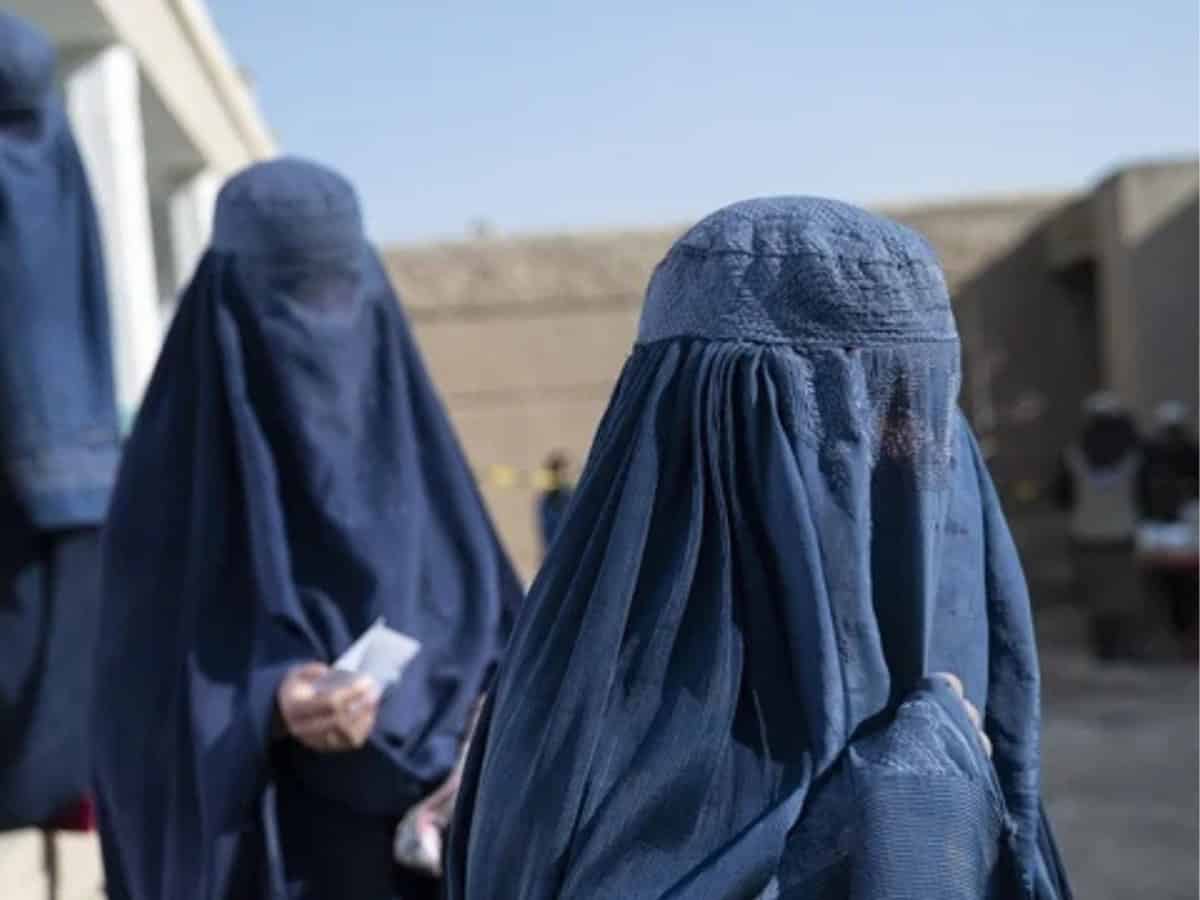
Under the Taliban regime, Afghanistan women face a harsh reality where their voices, bodies, and freedoms are systematically erased. Women and girls are being stripped of their autonomy, and forced into compliance with increasingly stringent laws that deny them their basic rights.
Oppressive rules that women in Afghanistan face
Among its repression of women’s bodily autonomy is the forced veiling of all their bodies and faces in public, under the threat of arrest, violence and intimidation. The right to choose hijab or not has been weaponized against women with those accused of wearing “bad hijab” facing severe punishment.
Afghan women’s voices are being literally silenced, as the Taliban has banned them from hearing each other. In addition, orders have been issued to alter or block windows to prevent women from being seen in public.
The media landscape in Afghanistan has also suffered a significant blow, as women are barred from appearing in Afghan television dramas, significantly diminishing their representation in the public sphere.
The Taliban also shut down Afghanistan’s only women’s radio station, Radio Begum, after a raid on February 4 seizing computers, hard drives, files, and staff phones. Two male employees, not in senior roles, were detained, the station said in a statement, as reported by AFP.
Increase in child marriage
The Taliban forces its soldiers to marry girls as young as 12 years of age. The culture of child marriage is so common that almost 30 percent of Afghanistan girls get married before attaining the age of 18 years, and 9.6 percent get married before the age of 15.
In addition, women in Afghanistan are legally oppressed as the regime bars them from taking men to court. Cases of domestic violence filed by women have been dismissed, and many victims of abuse have no legal redress.
Women’s access to mobility has similarly been curbed. The Taliban has banned women from operating vehicles, meanwhile prohibiting them also from using available taxis, catching public transport and travelling more than 45 miles without a male guardian.
Education, a basic right for any citizen, has been taken away from Afghan girls. The Taliban has made Afghanistan the only country in the world where girls and women are prohibited from secondary and higher education. Around 1.4 million Afghan girls have been deliberately deprived of education, ensuring that an entire generation of women will be ripped off the opportunity to learn and grow.
Further, the Taliban ordered women to “stay home” which meant being barred from employment. This led to the forceful removal of women from workplaces.
68 pc of Afghan women report poor mental health
UN Women data has noted a growing mental health crisis linked to the loss of rights in Afghanistan. Sixty-eight percent of women reported experiencing “bad” or “very bad” mental health with eight percent knowing at least one woman or girl who had attempted suicide.
An Indian woman who returned on February 5 after three years in Taliban-ruled Afghanistan told The Times of India, “I lived through immense fear, depression, and anxiety, especially in the early months of their rule.”
A senior official with the UN agency championing gender equality emphasized that the Taliban’s restrictions on women and girls will have long-term effects. “Our analysis indicates that by 2026, leaving 1.1 million girls out of school and 100,000 women out of university will lead to a 45 percent increase in early childbearing and a rise in maternal mortality by up to 50 percent,” she said.



